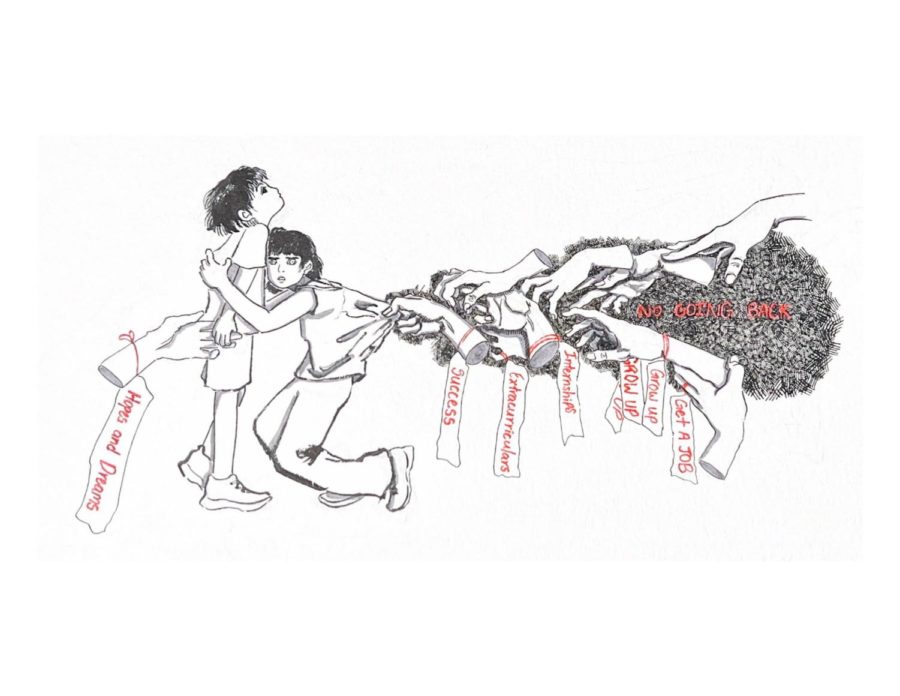When University of Chicago Institute of Politics Director David Axelrod interviewed former House Speaker Newt Gingrich in Mandel Hall last week, the GOP’s intra-party tensions were on full display.
Gingrich, who sought the Republican presidential nomination last year, blasted former rival Mitt Romney for his hardline position on immigration. Arguing that if the GOP wishes to reclaim power it must court the nation’s growing Latino population, Gingrich assailed Romney’s infamous call for unauthorized immigrants to “self-deport.”
“It’s anti-human,” he declared.
While Axelrod didn’t raise the topic, Gingrich also recently urged his party to accept marriage equality. “It is in every family. It is in every community,” he told The Huffington Post in November. “The momentum is clearly now in the direction in finding some way to…accommodate and deal with reality. And the reality is going to be that in a number of American states—and it will be more after 2014—gay relationships will be legal, period.”
Beyond advocating a big-tent approach on immigration and gay marriage, Gingrich also pushed back against far-right Republicans’ reflexive opposition to government. At one point, the erstwhile Tea Party alternative to Romney mocked Tea Party protestors who notoriously exclaimed, “Keep your government hands off my Medicare!”
Gingrich’s remarks are an intervention in a fierce debate within the Republican Party. Rising stars like Louisiana Governor Bobby Jindal and Florida Senator Marco Rubio contend that the GOP doesn’t need to change its policies, but rather how it markets them. Gingrich, on the other hand, wants his party to rethink key policy stances. Given that polls show that voters find the GOP’s hard-right platform unattractive, Gingrich appears to have the better of this strategic argument. But because fervent conservatives are the individuals most likely to vote in GOP primaries, it’s unclear whether the party will reverse course anytime soon.
Democrats, unsurprisingly, delight in the GOP’s internal squabbles. Yet, as President Barack Obama enters his final term and the Democrats ponder a future without him, they too will confront critical choices about what kind of party they wish to be.
Liberals and moderates within the party are united in hoping that former Secretary of State Hillary Rodham Clinton seeks the presidency in 2016. If she does, the nomination is almost certainly hers. She boasts sky-high favorability ratings, credibility among centrists (thanks largely to her moderate husband), and the good will of many liberals who, on second thought, wonder if she may have been a stronger figure than Obama to go toe-to-toe with John Boehner. Unlike 2008, the last time conventional wisdom held that the nomination process would be a cakewalk for Clinton, there is no obvious Democratic up-and-comer with the ideas, charisma, and fundraising prowess necessary to topple her. The only question is whether, after three exhausting decades in the national spotlight, Clinton wants to go through the rough-and-tumble of another campaign.
If Clinton opts to sit 2016 out, the Democrats will be forced to tackle crucial questions of principle and identity. On social issues, the party is clearly moving in a progressive direction. Never again will the Democrats nominate an anti-gay marriage presidential candidate. For party progressives, this marks a double blessing. It’s heartening to see a party that once tiptoed around social issues reach consensus on one of the key civil rights questions of the day. Moreover, now that the party has largely embraced reproductive freedom and gay rights, progressives can focus more intensively on income inequality and the necessity of a robust public sector.
Without Clinton in the mix, some of the leading Democratic contenders in 2016 are likely to be New York Governor Andrew Cuomo, Maryland Governor Martin O’Malley, and even Chicago Mayor Rahm Emanuel. Cuomo earned liberal plaudits for signing New York’s same-sex marriage law in 2011, and he recently launched a bold effort to shore up abortion rights in the state. Cuomo and Emanuel have both been at the forefront of the recent push for gun control measures, to the ire of conservatives.
But looking beyond Cuomo and Emanuel’s enlightened views on women’s rights, gays, and guns, one finds establishmentarian centrists uninterested in questioning neoliberal economic orthodoxy. Cuomo, like his New Jersey counterpart Chris Christie, fancies himself a budget-slashing, business-friendly executive. While he’s cut state government jobs, Cuomo has been cool to proposals to increase taxation on the wealthy—perhaps not surprising for a governor who enjoyed strong Wall Street support in his 2010 campaign. Emanuel, long the bête noire of Democratic liberals, is no more a friend of egalitarians than Cuomo. So far, the signature episode of his mayoralty has been the Chicago teachers’ strike of 2012, during which Emanuel peddled tired anti-union tropes and firmly aligned himself with the so-called education reform movement, whose agenda includes privatization, a religious devotion to standardized testing, and the demonization of teachers.
O’Malley, who signed Maryland’s gay marriage law last year and has been positioning himself for a presidential run for quite some time, would likely run to the left of Cuomo and Emanuel on economic issues, challenging the austerity agenda to which the latter two have hitched themselves. While she’s disavowed any interest in a 2016 run, if Senator Elizabeth Warren of Massachusetts were to enter the race, there would be a titanic clash of visions between the corporate and progressive wings of the Democratic Party.
The GOP’s spirited deliberations on what comes next are grabbing all the political press corps’ attention for now. But if the 2016 field does not include Hillary Clinton, it will almost certainly force Democrats to do their own soul-searching.
Luke Brinker is a graduate student in the MAPSS program.








